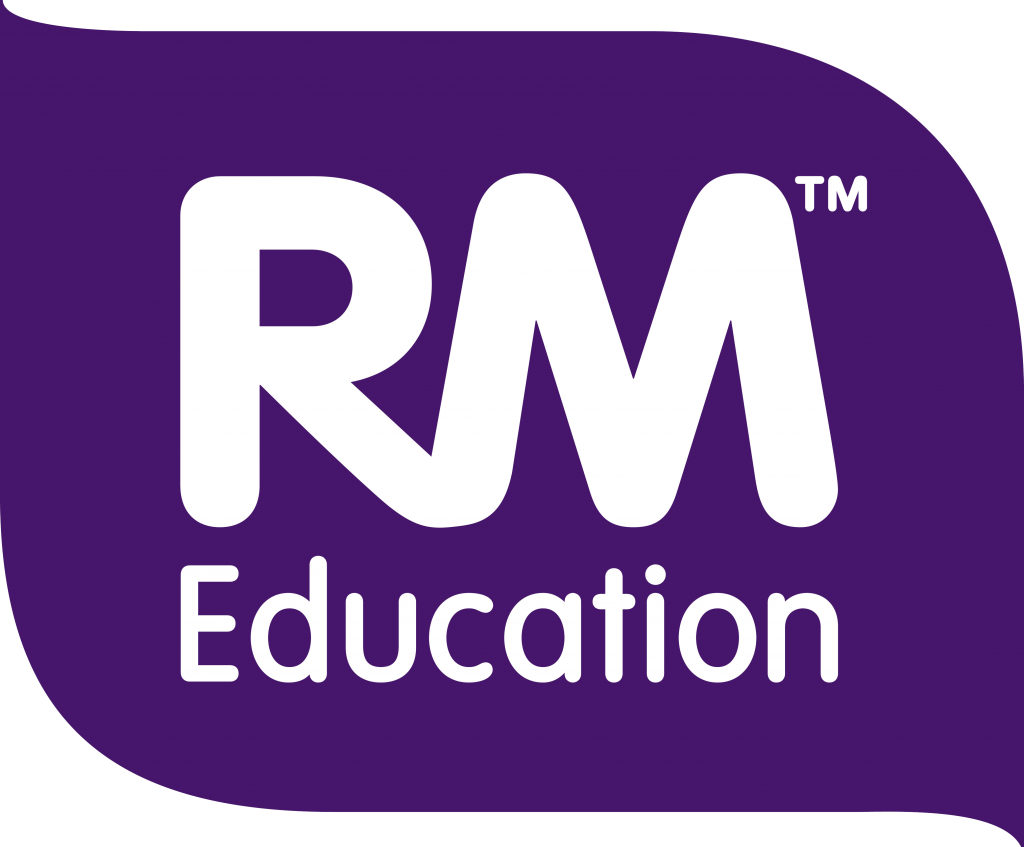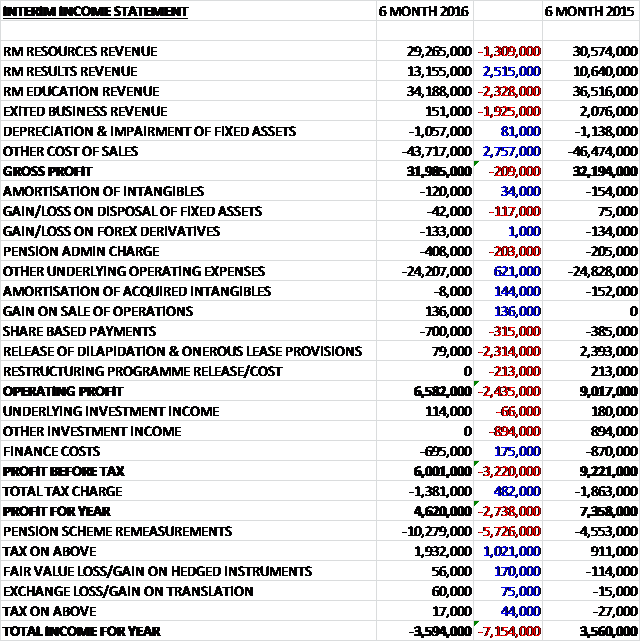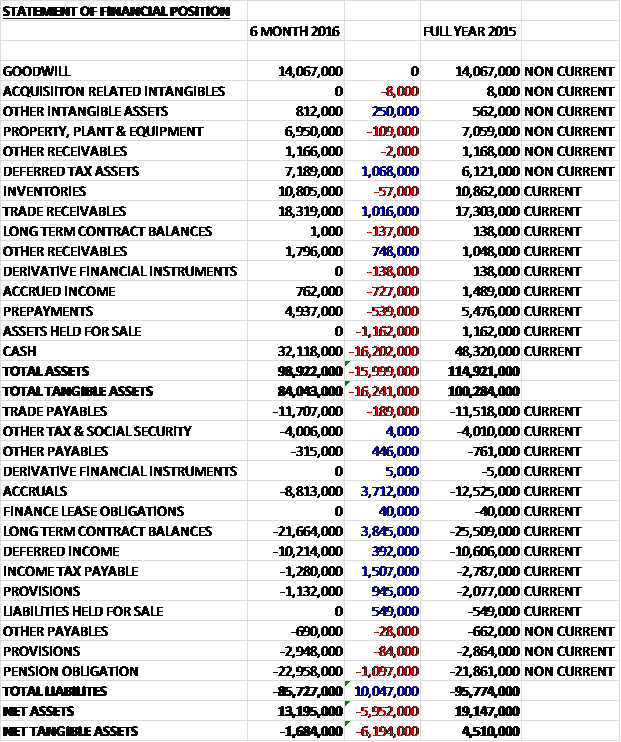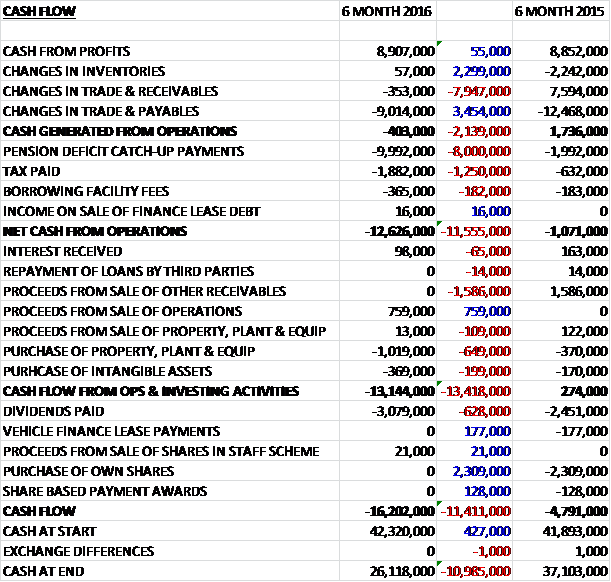RM has now released its interim results for the year ended 2016.
Revenues declined when compared to the first half of last year as a £2.5M growth in RM Results revenue was more than offset by a £2.3M decrease in RM Education revenue, a £1.3M fall in RM Resources revenue and a £1.9M decline in exited business revenue. Cost of sales also declined, but the gross profit was £209K below that of last time. We then see a modest fall in underlying operating costs but share based payments increased by £315K and there was a £2.3M lower release of provisions than last year which meant the operating profit declined by £2.4M. Non-underlying investment income fell by £894K but finance costs decreased by £175K and tax charges fell by £482K which meant that the profit for the first half of the year was £4.6M, a decline of £2.7M year on year.
When compared to the end point of last year, total assets declined by £16M driven by a £16.2M fall in cash, a £1.2M decrease in assets held for sale and a £727K decrease in prepayments, partially offset by a £1.1M growth in deferred tax assets, a £1M increase in trade receivables and a £748K growth in other receivables. Total liabilities also declined during the period as a £1.1M growth in pension obligations was more than offset by a £3.8M fall in long term contract balances, a £3.7M decline in accruals, a £1.5M fall in income tax payable and a £945K decrease in current provisions. The end result is a net tangible asset level of -£1.7M, a detrimental movement of £6.2M over the past six months.
Before movements in working capital, cash profits increased by just £55K to £8.9M. There was a large outflow through working capital due to a decline in payables and after tax payments increased by £1.3M and pension catch up payments grew by £8M, there was a net cash outflow from operations of £12.6M, a detrimental movement of £11.6M year on year. The group gained £759K from the sale of operations and spent £1M on fixed tangible assets along with £369K on intangible assets to give an outflow of £13.1M before financing. The group also spent £3.1M on dividends to give a cash outflow of £16.2M in the period and a cash level of £26.1M at the period-end.
Overall, the poor cash generation (partly seasonal), the weak balance sheet and the fact the pension is likely to be struggling post-Brexit means that I am holding off on this company for now, to re-visit at the final results stage.
On the 13th December the group confirmed that it expects results for the year to be in line with board expectations. Cash was £40M at the year-end compared to £48.3M last year but the deficit in the pension scheme has increased to £35M from £21.9M as a result of the significant reduction in corporate bon yields.
On the 22nd March the group released an AGM statement. The continued uncertainty over UK school funding is leading to caution in schools around discretionary expenditure. In particular demand for the curriculum specific products that TTS provides is down more than expected. Trading in Q1 in TTS’s international business has continued its positive trend, however. In March, RM Results extended the contract with the Department for Education for the school performance tables until March 2019 and also signed a five year framework agreement to provide a global assessment platform for Oxford University press. The full year outlook remains in line with board expectations.



